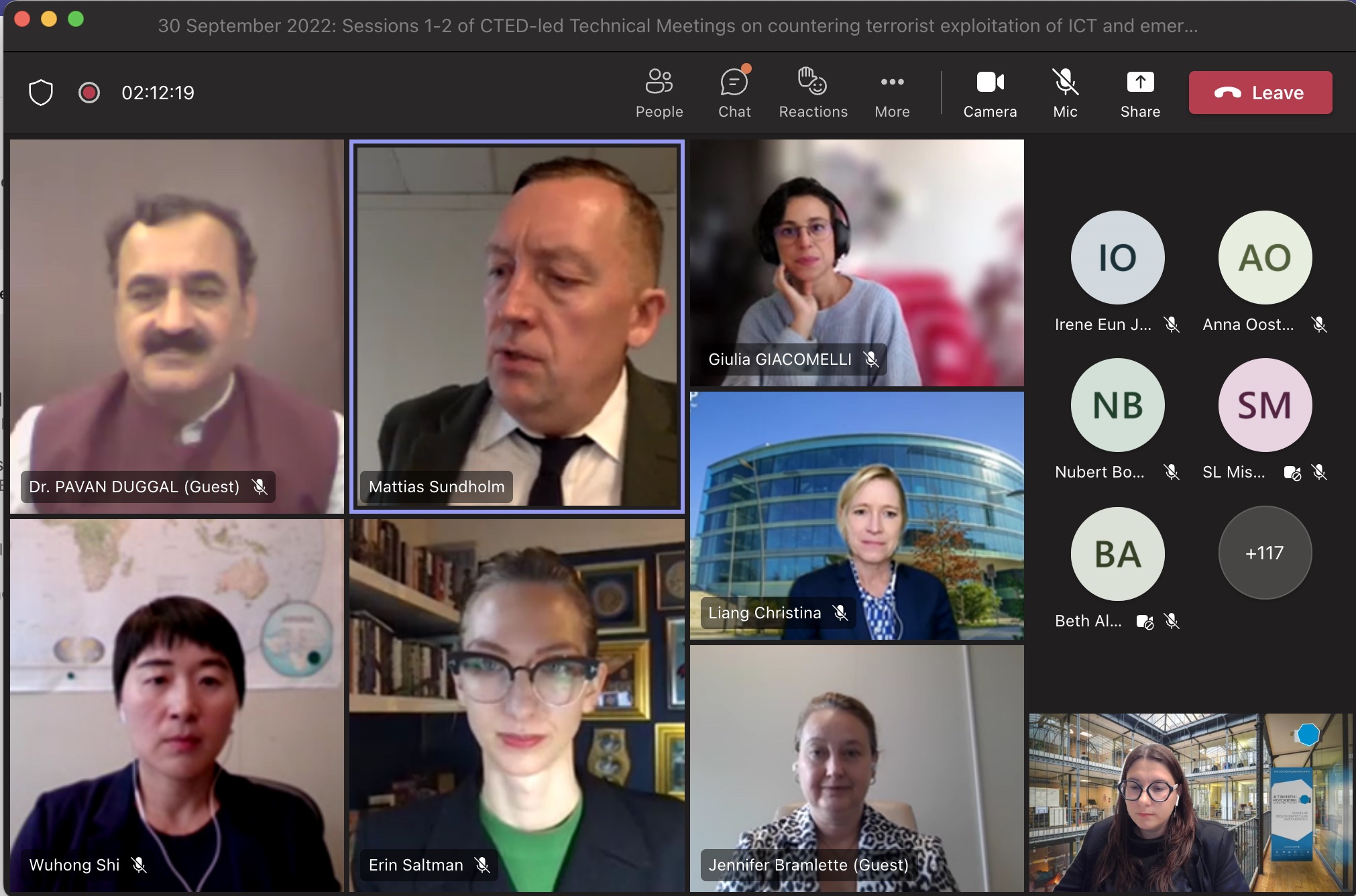Last week the Internet & Jurisdiction Policy Network (I&JPN) participated in the United Nations Security Council Counter-Terrorism Committee Executive Directorate (CTED) Technical Meeting “Countering terrorist exploitation of information and communications technologies (ICT) and emerging technologies”. The sessions “Legal and policy responses by Member States, the technology private sector and civil society organizations” and “Human rights, privacy and gender-related concerns and considerations related to countering terrorist activities online” explored how terrorist activities online are evolving with emerging technologies and international cooperation around access to electronic evidence.
Ajith Francis, Director of Policy Programs focused his remarks on international cooperation towards tackling and prosecuting both online and offline crimes at the session on “Human rights, privacy and gender-related concerns and considerations related to countering terrorist activities online”.
In today's digital environment services providers are often located outside the jurisdiction of the investigating authority or the jurisdiction where the crime is committed; this poses a range of challenges including the lack of existing international legal frameworks and conflict of laws with other countries in prosecuting crimes.
The Data & Jurisdiction Program Contact Group has focussed on the topic of cross-border access to electronic evidence and on the identification of appropriate due-process guarantees and safeguards that are applicable when requests and orders are made directly to service providers instead of using the traditional Mutual Legal Assistance Treaty route (MLATs). Such mechanisms can complement MLATs but are not intended to replace them.
I&JPN will also be taking part in informing the Special Meeting of the UN Security Council’s Counter-Terrorism Committee to be held in India in October 2022.
During the session on “Legal and policy responses by Member States, the technology private sector and civil society organizations” Julija Kalpokiene, Policy Consultant, shared insights from I&JPN’s work on the geographic scope of content restrictions and more specifically how to manage globally-available content in light of the diversity of local laws and norms applicable on the internet.
Topics relating to cross-border content moderation and jurisdiction issues and challenges on the internet have been addressed by the I&JPN Content & Jurisdiction Program Contact Group, fusing a unique methodology enabling discussions in a multistakeholder environment and also producing various outcomes.
“In the work of I&JPN, a number of prevalent issues and challenges have emerged regarding the divergence of legal regulation and associated challenges in content moderation and the prevalence of using Terms of Service rather than relying on the law or legal instruments,” said Ms Kalpokiene



